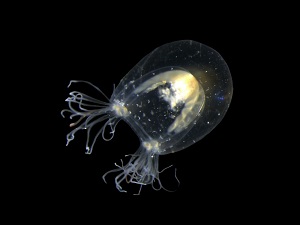Renewing our spirit of exploration as students in the field of biology
“…some of us are much more interested in the unknown. We want to discover completely new continents, and gaze at magnificent vistas of ignorance. We crave the experience of being completely baffled by something we’ve never seen before.”
It is this hunger for knowledge, for exploring the unknown — this native curiosity to search further and dig deeper — that embodies the spirit of the biology major and the scientist. It is what developmental and regeneration biologist Alejandro Sánchez Alvarado explains in his TED Talk to be the exact motivator we need in solving some of life’s most perplexing questions.
 Alvarado runs the Howard Hughes Medical Institute laboratory at the Stowers Institute for Medical Research in Kansas City, Missouri, where he focuses his research on the natural ability of some creatures to restore missing body parts after injury, and through molecular, genetic and cellular resolution.
Alvarado runs the Howard Hughes Medical Institute laboratory at the Stowers Institute for Medical Research in Kansas City, Missouri, where he focuses his research on the natural ability of some creatures to restore missing body parts after injury, and through molecular, genetic and cellular resolution.
“I love to study these animals that break the rules, because every time they break a rule, they invent something new that made it possible for us to be able to here today,” explains Alvarado.
The methods and approaches Alvarado and his team use are focused around the idea that to solve questions we have been asking for years, such as looking for a cure for cancer and degenerative diseases, we must turn to the exploration of studying entirely new and understudied species — that of which there are many.
For example, the National Oceanic and Atmospheric Administration recently estimated that about 95 percent of our oceans remain unexplored, as do the creatures that live there.
“I think it’s very safe to say that we don’t even know how much about life we do not know,” said Alvarado in his talk.
“…this emphasis today on forcing biological research to specialize and to produce practical outcomes is actually restricting our ability to interrogate life to unacceptably narrow confines and unsatisfying depths,” said Alvarado. “We are measuring an astonishingly narrow sliver of life, and hoping that those numbers will save all of our lives.”
Throughout his talk, Alvarado emphasizes the importance of field work in biological sciences and the importance of renewing our spirit of exploration as biologists — that taking an unrestricted dive into the unexplored could lead to a greater understanding of questions we have been asking for a long time.
“We, like all other species on this planet, are inextricably woven into the history of life on this planet… I think that life is actually an open secret that has been beckoning our species for millennia to understand it.”
If you hear the beckoning and you crave to know more and discover deeper, it is more than likely that the field of biology is right for you.
William Woods bachelors in biology students may take classes like BIO310: Vertebrate Zoology or BIO317: Comparative Vertebrate Anatomy and Physiology where they will study the diversity and connectivity of the different vertebrate classes both worldwide and here locally in Fulton and surrounding parts of Missouri. They will examine the form and function of anatomical structures from various species and integrate this knowledge with natural history to determine evolutionary relationships among vertebrates.

